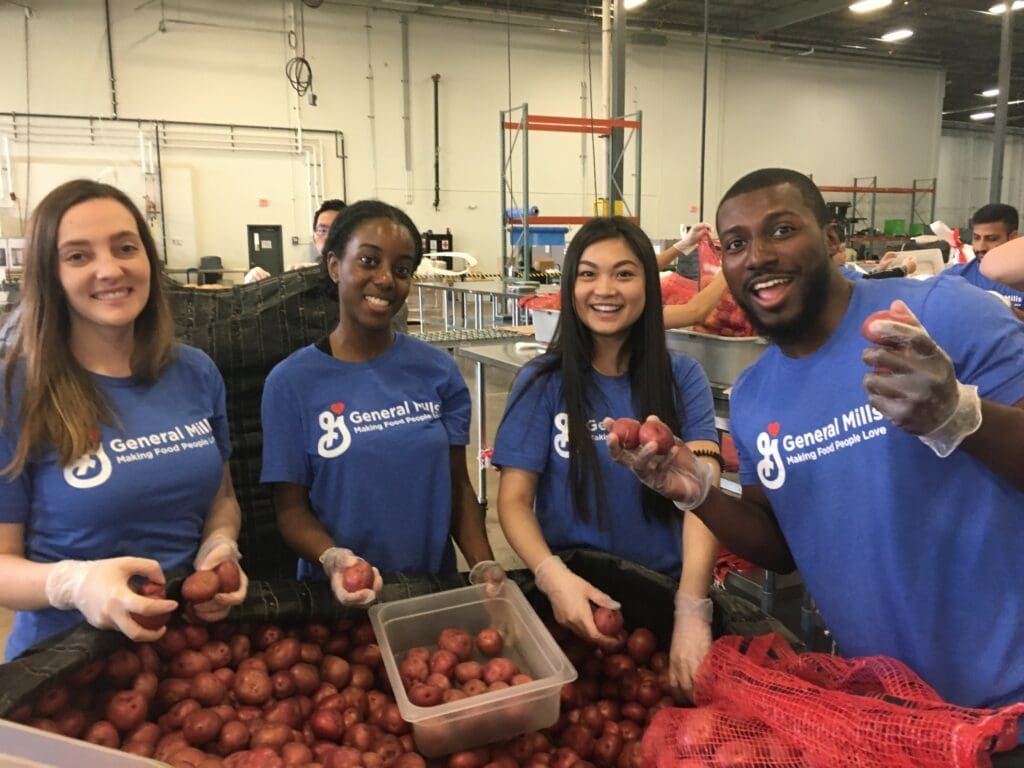
Bold and Broad Action Needed to Ensure Food Is Well Grown and Well Used
This week we commemorate World Food Day, a day dedicated to tackling global hunger, while driving expanded awareness of the shortfalls and potential of the world’s food system.
The topic is of course not just broadly relevant, but literally vital to the well-being of current and future generations.
Yet as we cast a spotlight on the state of our global food system, there is a caution about how we do it.
The daunting facts – 690 million people today remain malnourished and hungry, while one-third of all food produced for human consumption each year is wasted or lost – can leave some with the belief that our global food system is irrevocably broken; imbalanced to such a tragic degree that significant improvement couldn’t possibly be attainable.

Yet that kind of resignation, if left unchecked, poses a dangerous threat to our collective ability to make real and lasting progress.
To advance critical changes (and we must) that can yield improved outcomes for people and planet, it helps to zero in on specific, actionable areas within the world’s food system that are powerful levers, but still within grasp.
For example, the evidence is mounting that with different choices about how we grow and use the world’s existing food resources – through actions like surplus food redistribution and expanding regenerative agricultural practices – we can not only feed the world’s growing population, but also leave communities, farmers, soils, water and the climate all the better for it.
In order to scale such promising solutions, we need to go beyond awareness to driving bolder and broader action. We need more sectors, organizations and individuals to see and embrace their role to help bring about a new global food system: one that is more equitable, efficient, resilient and regenerative.
Despite my work here in a foundation, I will be among the first to attest that philanthropy alone is no panacea.
We need governments to develop policies that help eliminate the worst forms of inequity that result in poverty and hunger.
We need community members to be civically involved, supportive of food growers, aware of and attentive to issues like community hunger and food waste.
We need businesses to leverage their reach, scale and resources to adopt, influence and reward practices to ensure that food is valued, well grown and put to good use.

General Mills employees volunteer their time to help with rescue and redistribution of surplus food at local food banks
Here at General Mills:
- We provide training resources for hundreds of farmers who are seeking to adopt regenerative agricultural practices that leverage Mother Nature to rebuild soil and ecosystem health, resulting in more resilient farms.
- Through our philanthropy, we are scaling surplus food recovery solutions like FareShareGo in the UK and Feeding America’s MealConnect in the U.S., which to date have empowered more than 30,000 retail and foodservice locations in surplus food recovery.
- We are donating our own surplus food to charity, so products such as cereal, yogurt, pasta and granola bars can help feed hungry people, not landfills.
- Recognizing the powerful reach of our brands, General Mills developed the #TasteNotWaste campaign to share tips and ideas that are helping millions of households prevent food waste in their own kitchens. Like United Nations World Food Programme and its #StopTheWaste campaign, we believe that creating awareness and providing simple solutions can go a long way towards eliminating food waste.
The scope and scale of the world’s food imbalance and its consequences on people and the planet require bold and broad action. No single stakeholder group nor sector can do it alone. Each of us has a role to play. And together, we can make meaningful impact.
—
Nicola Dixon is the Executive Director of the General Mills Foundation. As part of the company’s commitment to increase community food security around the globe, General Mills and its Foundation are proud to partner with World Food Program USA to reduce childhood hunger and malnutrition.




